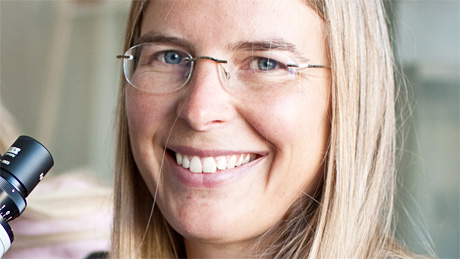Four Consolidator Grants for Junior Researchers at UZH

In the course of her research into the bacterium Helicobacter pylori at the UZH Institute of Molecular Cancer Research, microbiologist Anne Müller has gotten to know two sides of the microorganism: a good, and a bad. On the one hand her work has shown that Helicobacter in our stomach helps the body prevent allergies. On the other hand various research groups have shown that the bacterium facilitates the development of gastric cancer.
Generally passed on by mothers to their new-born babies, Helicobacter is widespread all over the world. The earlier the infection takes place, the less problematic it is. If the bacteria invade the stomach after the immune system has been built up, they are attacked by T cells. But Helicobacter knows how to neutralize these attacks. The unsuccessful immune responses from the T cells disrupt the balance in the stomach, resulting over time in chronic inflammation of the stomach lining, which in turn can lead to cancer.
So far scientists’ knowledge of precisely how cancer occurs in the stomach is fairly limited. This has prompted microbiologist Anne Müller to try and find out more about the mechanisms responsible and the role played by Helicobacter. Her findings will serve as the basis for targeted therapies to combat the disease.
Basis of a new drug for children
Helicobacter pylori is also important in terms of allergies. But in this case it plays the good guy, helping prevent children from developing asthma and other allergic reactions. Researchers have found that early infection with Helicobacter is useful on two counts, providing protection from allergies without increasing the risk of cancer.
Anne Müller is currently working in the lab to develop an active agent made up of components of the Helicobacter bacterium. The goal is to desensitize the immune system and prevent allergic reactions. This could be a promising therapy or prophylaxis helping small infants avoid health problems later on in life. The initial findings suggest that the strategy actually works. However, it will be years before the active agent can be used in practice, if at all.